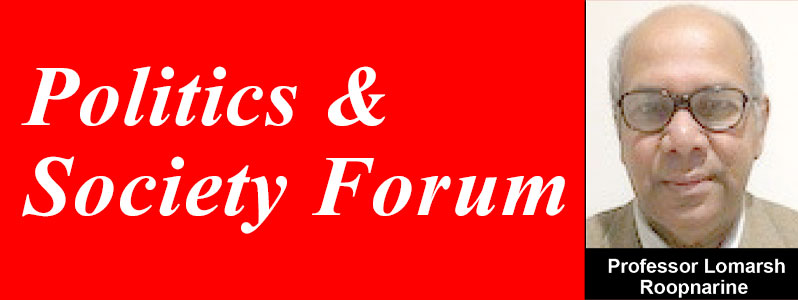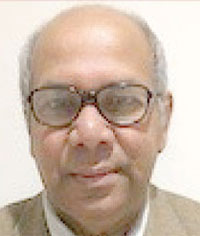I AM convinced that the role Suriname played during the twenty eight years of PNC dictatorship in Guyana, from the 1960s to the 1980s, is yet to be told even on a limited level. The Guyana-Suriname nexus has become increasingly important because the two countries have re-established strong ties which, by any stretch of the imagination, is intended to last for future decades. The idea of bridging the Corentyne River to facilitate trade and initiate other forms of development is just one example. Moreover, any historical and contemporary knowledge of the neighbourly nexus of two former European colonies, now independent, would be beneficial to our younger generation of Guyanese who are not old enough to have firsthand information and subsequent understanding as to what transpired during the PNC reign. I am not sure if that generation is fully cognisant of what their grandparents and parents endured to stay afloat during those dark years in Guyana. Do they know that the connection with Suriname was a life line for basic survival among working class Guyanese? Perhaps some memories, through oral communications, were passed on to them during the five months in 2020 to rig the general election.
Unfortunately, this piece is not referring to formal policies between the governments of these two countries because that will be a futile exercise. I leave that for the defenders of the PNC. The policies between the two countries then were simply limited and unproductive. Can anyone who is reading this column list one positive policy between Guyana and Surname during the PNC dictatorship? The only positive policies I can think of were when Suriname accepted some 40,000 Guyanese and when Forbes Burnham went to Suriname begging Guyanese to return home. In the latter situation, you could have heard the booing miles away, something Guyanese could not have done at Burnham’s rallies in Guyana. Police and henchmen were planted in the crowd to cow everyone into obedience to the Kabaka.
That said, I am referring to the clandestine activities Guyanese developed between themselves and Surinamese to merely survive starvation and malnutrition. Suriname, and in particular the town of New Nickerie and its environs, became a safety valve for Guyanese in the Upper Corentyne region and further afield. Crabwood Creek, to be precise, was the gateway for the smuggling of basic food items such as sardines, potatoes, flour and dhal into Guyana. These were banned food items, which were mainly the diets of Indians.
The pattern of smuggling on the Corentyne River had a chain connection: physically and mentally. The physical was that Guyanese would go over to Suriname in the day time, sometimes illegally, and establish connections and contacts on how to smuggle goods across the river. Once the goods arrived in Guyana, the police were paid off and so they turned a blind eye to any illegal transactions. The police were not earning sufficient money to sustain themselves and their family and so they were susceptible to bribes, kickbacks, and banned items. Actually, some police were directly involved in smuggling on and off duty.
The mental side of smuggling was that almost everyone on the Surinamese side and even on the Guyanese side in the villages was sympathetic to the reality that Guyanese were “punishing bad, bad” because of the PNC dictatorial policies. They were supportive of a humanitarian cause to save Guyanese, especially babies suffering mal-nourishment and starvation, despite how illegal. However, to keep abreast with stamping out “resistance to cooperative socialism,” the pressure was placed on local authorities to crack down on the smugglers. The outcome was that small-scale smugglers felt the brunt of the crackdown as many were fined and jailed. One smuggler told me then that he donated his entire profit on one smuggling expedition to the then Hoyte administration, and when I asked why, his response was “get sense nah, I will get back all that money plus me have full protection from the police.” Whether he was speaking the truth or not is not the point. The perception is that he believed that he could worm his way to the top echelon of an administration to protect his trade revealed the free-riding style of government of the day and its final Gotterdammerung.
Indeed, while Suriname was the supply side of badly needed goods and resources, Guyanese on the ground had to fashion out innovative ways to beat the system or be brutalised for just harbouring one can of sardines or one potato. One innovative way this writer witnessed was that fish sellers would catch sardines from the Corentyne River and load them in wooden boxes on the back of their bicycles riding from villages to villages blowing horns and shouting on top of their voices “nice fresh sardines for sale”. The reality was that under those fresh sardines were real cans of “Illegal” sardines for sale. Up to this day, the police had not figured what those fish sellers were actually selling. Unfortunately, stories like these and others of how Surinamese helped Guyanese during the horror years of PNC dictatorship remain closeted, how sad! (lomarsh.roppnarine@jsusms.edu)



.jpg)








